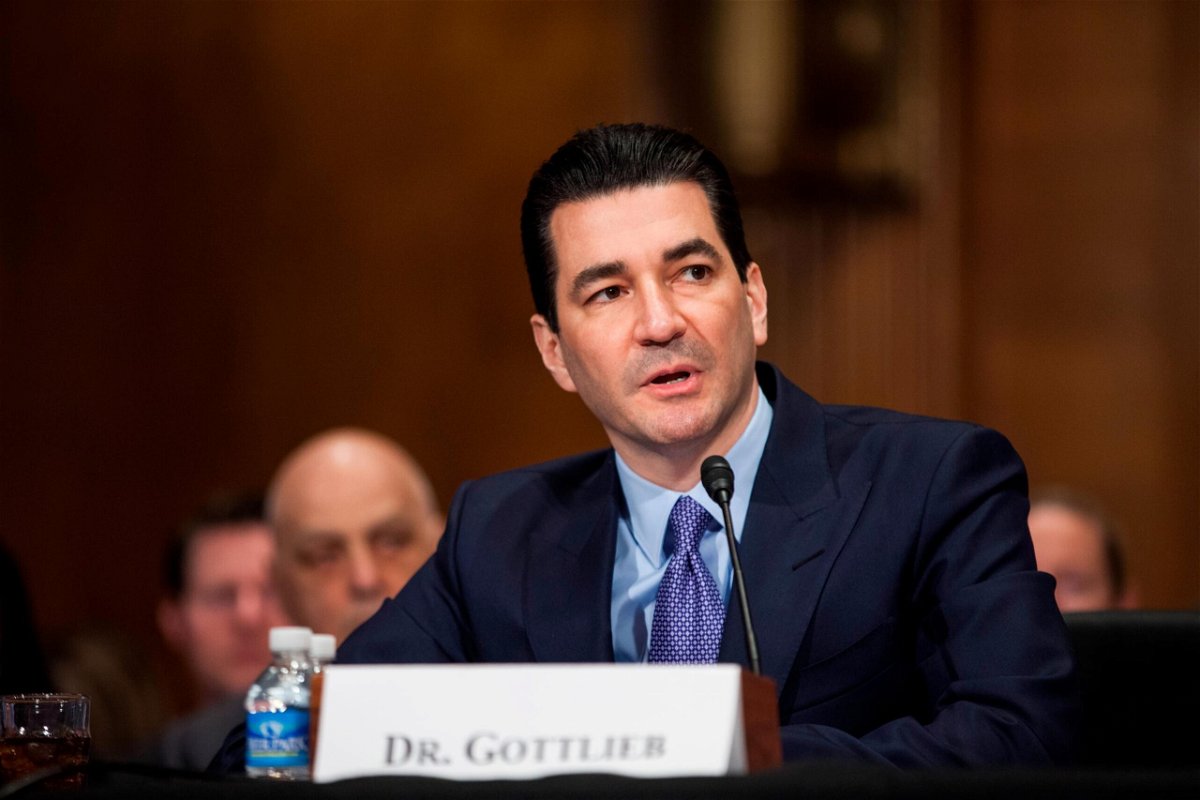How to avert — and prep for — the next pandemic: Q&A with Dr. Scott Gottlieb

During the pandemic
By Andrea Kane, CNN
During the pandemic, Dr. Scott Gottlieb — like a handful of public health experts — became a household name and his face became a familiar sight on television news shows.
The head of the US Food and Drug Administration from 2017 to 2019, Gottlieb says he tried to avert the global health emergency by sounding the alarms very early on to former colleagues in the Trump White House and in Congress.
Today, he has another message.
“I don’t think pandemics need to happen. I think emerging viruses will happen, but I don’t think that they need to turn into pandemics,” Gottlieb told CNN Chief Medical Correspondent Dr. Sanjay Gupta in his podcast, Chasing Life.
“Maybe the pandemics that happened in the past — where we were sort of helpless and couldn’t do anything to either detect them and contain them early or thwart them with vaccines and therapeutics quickly — now we have the tools to prevent them from spiraling into pandemics. And I think that that should be our goal. I think it’s achievable.”
In this week’s episode, Gottlieb tells Gupta what went wrong in the early days of the emerging global health crisis and how disaster can be averted next time.
And to be sure, there will be a next time.
Gottlieb — an internal medicine doctor, a member of the board of directors of vaccinemaker Pfizer, as well as a resident fellow at the conservative American Enterprise Institute think tank and a businessman — is now out with a new book, “Uncontrolled Spread: Why COVID-19 Crushed Us and How We Can Defeat the Next Pandemic,” in which he spells it all out.
Below are a few excerpts from the conversation between Gupta and Gottlieb, edited for clarity.
Dr. Sanjay Gupta: You are one of the voices that I’ve listened to consistently — I think the country has. There [are] obviously clear headline messages: Wear a mask, get a vaccine — things like that. But understanding the “why” behind the “what,” which you do so well, is, I think, so important when it comes to people feeling like they’re empowered. … So, thank you.
Congratulations on the book. What made you decide to write it?
Dr. Scott Gottlieb: I was involved in some aspects of the response with the (Trump) administration. I had been interacting quite a bit with the White House and I looked at some of the books that were being developed. A lot of them focused on the immediate response and I think captured the political narrative in a lot of detail.
I didn’t feel that there was anything being worked on that tried to take a step back and look at the more fundamental systemic shortcomings that really plagued our response and … left us unprepared for this. And then how do we fix that going forward? How do we change our pandemic preparedness posture so that this doesn’t happen again? And that really needs to be our goal. We can’t say we’re going to invest all this money and engage in all this activity to make sure next time it’s not so bad. We have to … prepare better with the mindset that we can prevent this from happening again. I think we can.
Gupta: Is that true? I mean, are pandemics inevitable? Because it sounds like everyone says we’re sort of entering the pandemic era. … You’re saying pandemics are likely to happen, but we don’t have to be as impacted by it.
Gottlieb: Yeah, I don’t think pandemics need to happen. I think emerging viruses will happen, but I don’t think that they need to turn into pandemics. … There was a lot of opportunity, even with Covid, that we could have detected this outbreak a lot sooner. The Chinese government could have detected it sooner and taken certain actions, but we could have as well, if we had the right posture and were engaging the right resources. There was information that was available by mid-December, certainly, that could have been obtained and it would have given us a month head start at least on this. And, you know, in the hands of a competent political response, a month is a long time.
Gupta: I think it raises a fundamental point, Scott, which is, it’s not necessarily the ability to do things, it’s the will sometimes to do things. … Are we willing to do those things, I guess, is the question. Are we willing to spend the money, devote the resources and plan — now, I’m talking about the future — for something that may or may not happen?
Gottlieb: Look, we’re going to be willing to do it in the near term. We’re going to end up investing a lot of money in a new posture, in new agencies, new capacities, here domestically.
I think the bigger question is, will we stick with it? Because the next pandemic might not happen next year, in the next five years, even in the next 10 years. But it will happen at some point. There will be a pathogen that emerges that at least threatens us in that way that can spill into the next pandemic. And the question is, will the posture that we invested in have atrophied? And that’s what happened this time.
The-CNN-Wire
™ & © 2021 Cable News Network, Inc., a WarnerMedia Company. All rights reserved.
